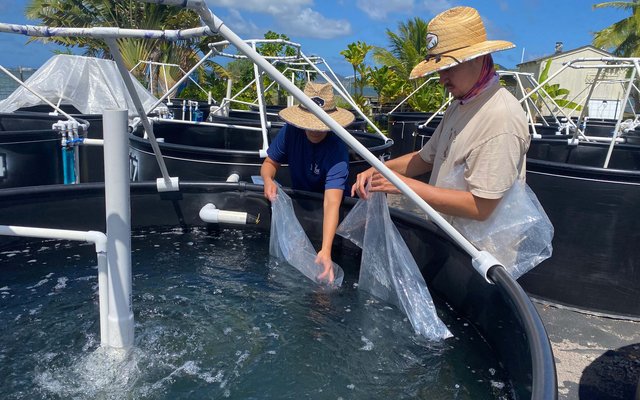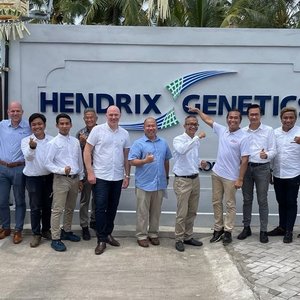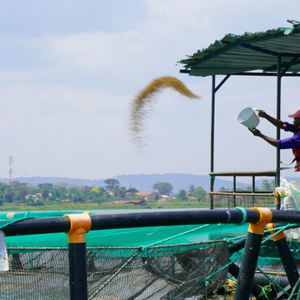The University of Hawaiʻi (UH) Mānoa College of Tropical Agriculture and Human Resources (CTAHR), Oceanic Institute (OI) of Hawaiʻi Pacific University (HPU), and Hawaiʻi Sea Grant received two grants from NOAA Sea Grant, USD 1 million for kampachi (almaco jack) and USD 250,000 for Pacific white shrimp. The funding, which will be used to improve the reproduction of both kampachi and Pacific white shrimp, is part of a nearly USD 14 million federal funding investment by NOAA Sea Grant.
The Kampachi project
Kampachi, a high-value finfish group for offshore aquaculture development, is generally difficult to rear and harvest on a large scale. The Kampachi grant will be used to improve egg quality, fecundity, and juvenile development to expand its commercial production.
“Through an integrated collaboration among university research, extension, and industry partners, the results obtained through this proposed work will result in the facilitation and expansion of commercial development of this and related species. By addressing production constraints, this combined HPU and UH Mānoa effort will contribute to increasing commercial production of kampachi in Hawaiʻi,” said Andre P. Seale, UH’s principal investigator of the grant.
“Seriolids are currently cultured in Hawaiʻi but efforts to scale-up production have been limited by reproductive challenges in captive stocks. This grant will help improve our understanding of this limitation, ultimately paving the way for significantly increased culture potential. Increased local production of marine fish will decrease our need for the importation of seafood, ultimately increasing and improving Hawaiʻi’s food security,” said Chatham Callan, HPU’s co-investigator of the grant.
The shrimp grant
The Pacific white shrimp grant will focus on improving the reproduction performance of shrimp through a genomic approach, including laboratory experiments focused on assessing and improving the shrimp’s genetic traits.
“In 2021, approximately 500,000 selectively bred shrimp broodstock, with a value of around $15 million, were exported from Hawaiʻi to shrimp hatcheries around the world. The high reproductive output of shrimp broodstock (i.e., the number of eggs and larvae produced) is vitally important to hatchery operations, but these traits have received little attention from genetic improvement programs due to critical knowledge gaps. Our project with Hawaiʻi Sea Grant aims to use new advances in shrimp genomics to better understand the genetics of shrimp reproduction and, ultimately, develop effective genetic improvement strategies for these traits. Knowledge gained from this project will allow U.S. shrimp genetic improvement companies, including those in Hawaiʻi, to develop new shrimp lines and maintain a competitive advantage in the global shrimp broodstock market,” said Dustin Moss OI’s co-investigator of the grant.













